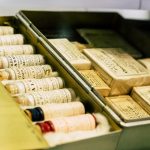Experts are urging schools to include fun activities like eating ice lollies, planting vegetables, and kneading bread in the curriculum to help students learn about science.
Four major science organisations believe these “essential experiences” will help reduce educational inequalities in subjects like science, technology, engineering, and mathematics (STEM). They argue that children with limited hands-on experiences are at a disadvantage when learning these subjects.
The Royal Society of Chemistry, the Institute of Physics, the Royal Society of Biology, and the Association for Science Education recommend that activities such as playing with shadows, digging in soil, and recycling should be part of the primary school curriculum for children aged 3 to 11. These experiences are seen as important for building a strong foundation in science.
Aylin Ozkan from the Royal Society of Chemistry highlighted the importance of using simple tools, like ice blocks, to teach concepts such as temperature. She explained that this approach is not only affordable but also helps build scientific confidence in children, regardless of their background.













